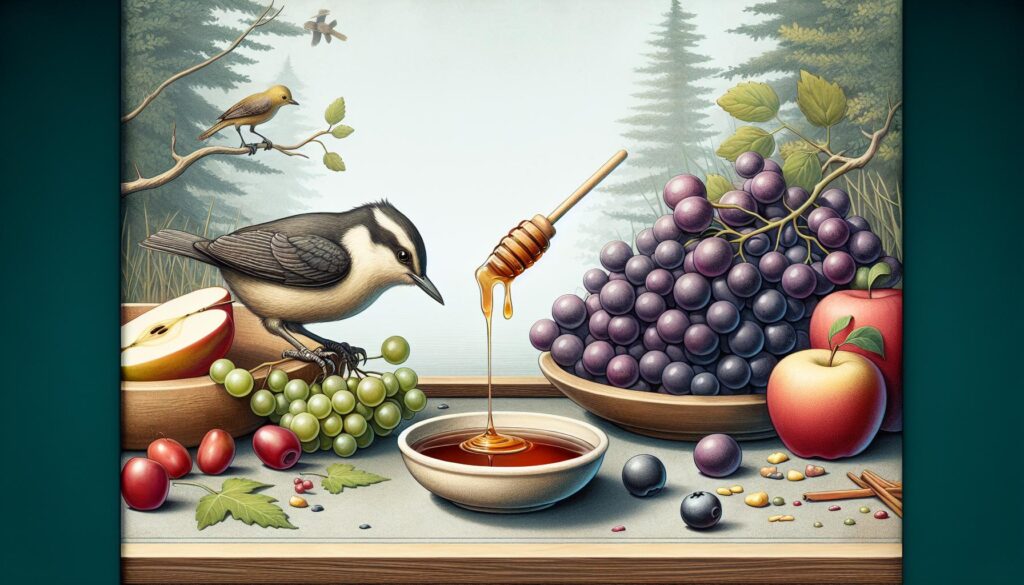
Can Birds Eat Maple Syrup?
Can Birds Eat Maple Syrup?
Let’s delve into the specifics of maple syrup’s nutritional content and its potential impact on birds.
Analyzing the Sugar Content
Maple syrup, a popular and naturally sweet substance, boasts a high sugar content. According to the United States Department of Agriculture (USDA), one tablespoon contains over 13 grams of sugar. This makes it a high-energy food. However, its sugar isn’t like the one found in fruits that birds typically consume. It’s primarily sucrose, a complex sugar that birds may have difficulty digesting.
Possible Health Effects of Maple Syrup on Birds
The unusually high sugar content of maple syrup poses certain risks to birds. Over-consuming sucrose can bring about health issues, most notably obesity. A bird’s diet needs to be balanced, and overfeeding sugar-rich substances like maple syrup disrupts that balance.
Further, the sticky texture of maple syrup presents potential handling and cleaning issues. If syrup sticks to a bird’s feathers, it can cause discomfort and even hinder their ability to fly.
Thus, while maple syrup isn’t inherently toxic to birds, its high sugar content and sticky consistency may negatively affect their health and well-being. It’s always important to provide a varied diet for your feathery friends, with natural, bird-safe options forming the bulk of their meals.
Alternatives to Feeding Birds Maple Syrup
In the quest to provide favorite pets with varied food options, one might wonder what alternatives exist to maple syrup. After discovering that the sugar-packed syrup isn’t the ideal dietary supplement for birds, let’s delve into healthier choices.
Healthy Bird-Friendly Sweet Foods
Birds possess a fondness for sweet foods mimicking their natural diet. However, not all sweet things are beneficial for our feathered friends. Nutritionally dense alternatives exist that birds can enjoy without experiencing the potentially harmful effects of excessive sugar consumption.
- Berries are delightful treats for birds. Types such as raspberries, strawberries, and blueberries offer the desired sweetness combined with a myriad of essential vitamins.
- Grapes may appeal to birds as well. Ensure that they’re thoroughly washed, pesticide-free, and chopped into small, manageable parts.
- Apples serve as terrific options. Apart from their sweet taste, apples contain significant fiber that aids digestion in birds. Remove any seeds before presenting this to your pet, as apple seeds contain cyanide, too much of which can harm your bird.
Remember, moderation is vital with these sweet food offerings. Whilst birds relish these sweet fruits, it’s essential not to permit overindulgence that could lead to health concerns.
Why Natural Fruits are Better
Natural fruits easily rank among the healthier sweet food choices for birds. Unlike processed, sugary substances like maple syrup, fruits are infused with vital nutrients such as vitamins and fibers, instrumental for maintaining optimal bird health.
- The sugar in natural fruits are not refined, making it gentler and slow-releasing. This allows birds to maintain stable energy levels, contrary to the sugar rush provided by synthetic choices.
- Fruits possess a high-water content that aids in hydrating birds, especially during warm weather.
- Natural fruits proffer generous amounts of fiber, vital for promoting regular bowel movements and improving overall gut health for birds.
Choosing natural fruits over maple syrup as a sweet treat for birds provides a healthier, safer alternative. By doing so, you’re not only satisfying their sweet craving but also ensuring they receive necessary nutritional value with every bite.
Ethical Considerations
Focus on the broader implications of feeding birds human food like maple syrup, particularly from an ethical standpoint.
The Impact of Human Foods on Birds
Human foods, especially those high in sugar like maple syrup, impose significant health risks on birds. They lack the necessary metabolic adaptations to process these foods efficiently, leading to health conditions such as obesity and diabetes.
Moreover, human foods disrupt the natural diet of birds. For instance, fruits like apples and grapes, often rich sources of vitamins and fiber for birds, may be ignored in favor of sugary treats, causing nutritional imbalances.
Choosing to feed birds human food, knowingly or unknowingly, presents serious ethical issues related to animal welfare. It interferes with their natural diet and can significantly shorten their lifespan.
Instead, you’re suggested to stick with bird-specific diets or safe food alternatives that consider the unique nutritional needs and metabolic capabilities of birds. Making a conscious and informed decision can contribute positively to their wellness and longevity.
Backing these affirmations, numerous authoritative sources, including the Audubon Society and the American Veterinary Medical Association, discourage the feeding of processed and sugary human foods to birds.
Reiterate that it’s important to do proper research or consult with a wildlife expert before you decide what to feed flying friends. It’s not merely a matter of preference. Instead, it’s an ethical responsibility to safeguard their well-being and uphold the natural ecosystem. By doing so, you enable birds to thrive in their natural habitat and maintain the delicate ecological balance for generations to come.
